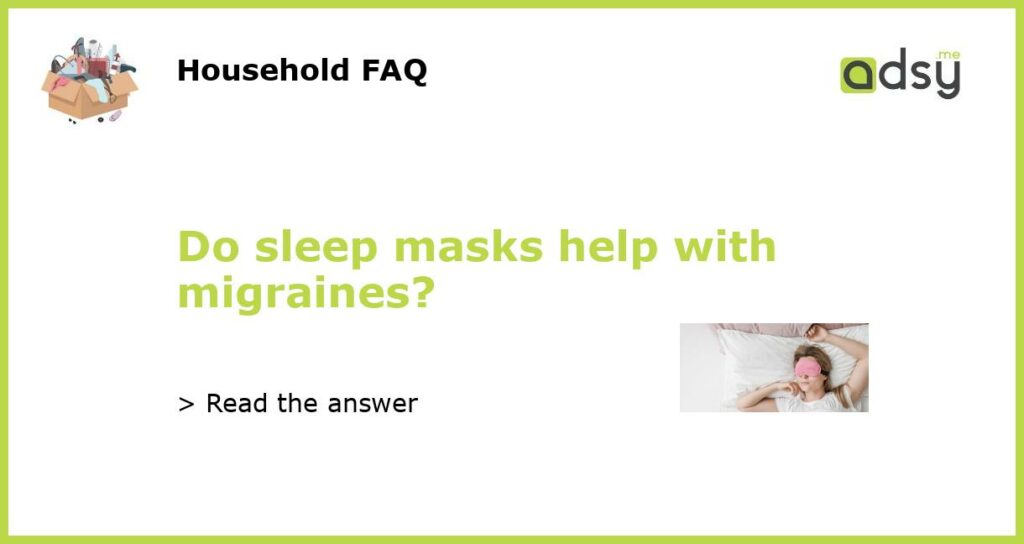What are migraines?
Migraine is a neurological condition characterized by recurrent headaches that can range from moderate to severe. These headaches are often accompanied by other symptoms such as nausea, sensitivity to light and sound, and in some cases, visual disturbances. Migraine attacks can last anywhere from a few hours to several days, and they can significantly impact a person’s quality of life.
The connection between sleep and migraines
For individuals who suffer from migraines, both the quantity and quality of sleep can play a role in triggering or worsening their symptoms. Research has shown that irregular sleep patterns, lack of sleep, and sleep disorders such as insomnia can increase the likelihood of experiencing a migraine attack. Additionally, both sleep deprivation and excessive sleep have been associated with migraines.
Can sleep masks help with migraines?
Sleep masks are commonly used to block out light and create a dark environment that promotes better sleep. While there is no direct scientific evidence specifically linking sleep masks to migraines, they may be helpful for migraine sufferers who are sensitive to light and find it difficult to sleep during an attack. By wearing a sleep mask, individuals can create a dark sleeping environment that may help reduce the severity of migraines and potentially alleviate symptoms such as photophobia (light sensitivity).
It is important to note that sleep masks are not a cure for migraines and should not be relied upon as the sole method of managing migraines. They may be used as part of a comprehensive management plan that includes other strategies such as medication, lifestyle changes, and stress management techniques.
Other strategies for managing migraines
In addition to using sleep masks, there are several other strategies that can help manage migraines:
Avoid triggers: Identify and avoid any triggers that may be contributing to your migraines. Common triggers include certain foods, stress, hormonal changes, and changes in sleep patterns.
Practice good sleep hygiene: Establish a consistent sleep schedule, create a comfortable sleep environment, and practice relaxation techniques to promote better sleep.
Use medication: Over-the-counter pain relievers, prescription medications, and preventive medications can be used to manage migraines. It is important to consult with a healthcare professional to determine the most appropriate medication for your specific situation.
Manage stress: Stress can be a trigger for migraines, so finding effective stress management techniques such as relaxation exercises, yoga, and therapy can help reduce the frequency and severity of migraines.
Conclusion
Sleep masks may be helpful for migraine sufferers who are sensitive to light and have difficulty sleeping during an attack. By creating a dark sleeping environment, sleep masks can potentially reduce the severity of migraines and alleviate symptoms such as light sensitivity. However, it is important to remember that sleep masks are not a cure for migraines and should be used in conjunction with other management strategies, such as avoiding triggers, practicing good sleep hygiene, using medications, and managing stress. Consulting with a healthcare professional is advisable to develop a comprehensive management plan for migraines.






